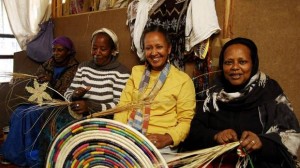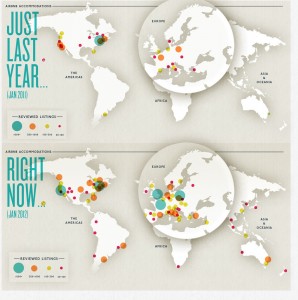What United Nation can offer is financial aid. However, what social enterprise and programs such as Arc can do is more than just offer fund. Because United Nation needs to fund for many less developed places, it is hard for United Nation to know what people in each place really need, perhaps more than just money.
Picture from: The Globe and Mail
What undeveloped places need is to fuel economic growth and economic growth depends on local businesses. This is exactly what Arc Initiative aims to do: Help local business of undeveloped places by providing business advice. Arc initiative, hosted by Sauder school of Business, for example, Shega Shero Eatery, a restaurant in Addis Ababa, is threated by competitors in that area. But the owner of Shega Shero Eatery, Tesfaye, participated Arc Initiative workshop and used new business model she learned in Arc Initiative to make more profits.
Picture from: The Globe and Mail
The growth of local businesses brings many benefits such as increasing employment rate for people in that area. Another example is Salem’s Ethiopia, a craft boutique in Addis Ababa. Under the aid of Arc Initiative, the owner of Salem’s Ethiopia expanded the factory of Addis boutique and hire more people. Hiring more people provides more job opportunity for local people.
Picture from: The Blackboard Blog
To fundamentally solve social problems, fund is far from enough. At this time, social enterprises play roles to change the situation in many ways such as using technology to provide convenience for disability.









